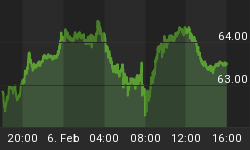If posting on December 22nd was a bad idea, imagine how stupid it is to post on December 23rd?
But I noticed something unusual and thought to point it out. Yesterday, I observed that the data has generally been weakening, and while some commentators are optimistic on the outlook for 2016 I am not one of them. Actually, it appears that perhaps commentators as a whole are not only too optimistic now, but have been too optimistic all year.
The Citi Economic Surprise Index is an interesting data series that measures how data releases have generally compared to economists' prior expectations. When data is coming in weaker than expected, it declines; when data is coming in stronger than expected, it rises. This doesn't necessarily mean that it declines when the economy is weakening, just when the data is surprising on the downside. I've always had trouble figuring out just how to use this information, because of that. Is the indicator rising because conditions are getting better, or just because economists are morose? Is it falling because conditions are getting worse, or because economists are too optimistic? Hard to tell.
With that said, here is what the indicator has done over the last three years (source: Bloomberg).

Nothing to see here, right? Well take a look at this! The table below shows the proportion of the time, by year (since the index was created in 2003), that the index was above zero.
| 2003 | 57% |
| 2004 | 49% |
| 2005 | 68% |
| 2006 | 43% |
| 2007 | 57% |
| 2008 | 36% |
| 2009 | 67% |
| 2010 | 56% |
| 2011 | 54% |
| 2012 | 63% |
| 2013 | 61% |
| 2014 | 54% |
| 2015 | 8% |
Now that, as they would say on Mythbusters, is a result. I have no idea what it means, that economic data has been consistently undershooting expectations all year so that the index has been negative 92% of the time. The second-worst outcome was 2008, but that was clearly a situation in which the economy was getting worse lots faster than economists anticipated.
I am inclined to think that this represents the optimism that economists seem to have that the Fed's move to tighten policy reflects a response to actual underlying strength. I should add that I believe this is an unfounded, irrational, and borderline psychotic optimism given the historical prognosticative powers of the Federal Reserve...but if that is indeed what is happening then the optimism that these same economists have about the number of rate hikes we will see in 2016 is probably misplaced.
You can follow me @inflation_guy!
Enduring Investments is a registered investment adviser that specializes in solving inflation-related problems. Fill out the contact form at http://www.EnduringInvestments.com/contact and we will send you our latest Quarterly Inflation Outlook. And if you make sure to put your physical mailing address in the "comment" section of the contact form, we will also send you a copy of Michael Ashton's book "Maestro, My Ass!"















